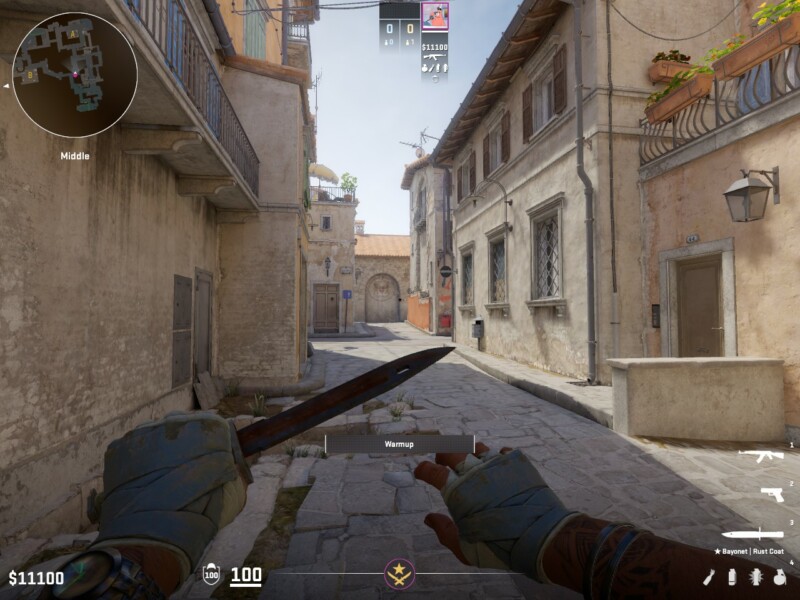#War #Gaza #Netanyahu #survival #Hamas #defeat #analysis #Jeremy #Bowen #BBC #international #editor
Image source, EPA-EFE
Photo caption, Hamas’ announcement of the ceasefire proposal has put the Israeli prime minister at a crossroads.Article information
- Author, Jeremy Bowen
- Role, BBC International Editor
-
2 hours
After months of intense talks between Israel and Hamas and the group of mediating countries, the time has come to make difficult decisions.
Hamas has accepted a proposed ceasefire agreement that is “far from meeting Israel’s demands,” according to Benjamin Netanyahu. Even so, the prime minister has considered it necessary to send a delegation to study it.
Israel accepted a ceasefire proposal in late April. US Secretary of State Antony Blinken said the offer was “exceptionally generous”.
Bridging the differences between Israel’s version and the one accepted by Hamas is the great challenge for negotiators in Cairo. Diplomatic sources in Qatar, which is part of the mediation efforts alongside Egypt and the United States, assured me that this is “broadly the same proposal from Israel. Only minor changes were made in terminology and details.”
Israel can interpret, however, that the differences are not minor. A major sticking point has been that Hamas wants the ceasefire to be permanent, not temporary, and to be followed by an Israeli withdrawal from Gaza.
If the American delegation, led by CIA chief William Burns, believes that the differences between the two can be bridged, Netanyahu can assume that there will be pressure from Washington to accept it.
image source,
image caption, Israeli forces began an incursion into Gaza.
“There are two ways to look at Hamas’ tactics”
Until Monday afternoon, Israel’s assumption was that Hamas would reject a ceasefire proposal. Benjamin Netanyahu and his government, like most foreign analysts, were surprised when the Palestinian Islamist organization announced its decision.
There are two ways to look at Hamas’ tactics. It can be interpreted as a desperate measure on the part of an organization badly drained and almost destroyed by Israel’s long offensive.
Or as a clever political move that has put pressure on Netanyahu. That explanation is more credible, since it upset Israel’s plans and assumptions.
We know that Israel calculated the next phase of the war on the assumption that Yahya Sinwar, the head of Hamas in Gaza who has been in hiding since October 7, would never accept a ceasefire.
Israel used the absence of a ceasefire proposal from Hamas to support its decision to launch a Rafah military operation. And the United States has made it very clear that it is against any ground operations in that city that could threaten the lives of more Palestinian civilians.
image copyrightGetty Images
Photo caption, Israel has been bombing Rafah, in southern Gaza, since Monday, in what it calls a “limited scope” operation.
As Israel warned some 100,000 Palestinians to leave their homes on Monday morning, its Defense Minister, Yoav Gallant, told his American counterpart that there was no alternative to an attack on Rafah.
That, he argued, was because Hamas had rejected all proposals for a temporary ceasefire and the release of hostages. Just a few hours later, Hamas made the announcement, exposing Israel’s bluff.
Netanyahu, “under strong pressure”
Netanyahu is in a bind politically. His governing style during more than 16 years as Israel’s leader has been characterized by postponing difficult decisions.
However, you are now under severe pressure on all fronts and, although buying time may be very tempting, it is a time to make decisions.
The most intense pressure comes from two ultra-nationalist Jewish extremists in his cabinet: Finance Minister Bezalel Smotrich and National Security Minister Itamar Ben Gvir.
Netanyahu needs their votes to keep his coalition in power. They want Israel to occupy Rafah and have threatened to overthrow the government if it does not do so. They consider that a ceasefire is equivalent to surrender.
At the same time, families and supporters of the Israeli hostages have demonstrated in the streets, blocking some of the country’s main roads to demand that Israel accept a deal that would allow them to be returned home.
The families of the hostages have support in the war cabinet of Benny Gantz and Gabi Eisenkot, two opposition leaders who joined this body after the October 7 attacks. They could abandon the government if, in the absence of a ceasefire, the hostages remain kidnapped.
image copyrightGetty Images
Photo caption, The families of those kidnapped demand that Netanyahu accept the proposed ceasefire agreement.
And the Americans also want a deal. President Biden’s support for Israel, despite the high number of Palestinian civilian deaths, is costing him political support in the United States.
If Biden decides there is an acceptable version of a ceasefire, he will pressure Netanyahu to accept it.
The Israeli leader would have to choose between the survival of his government and the vital support that the American president has given him in recent months.
The widespread opinion in Israel is that Netanyahu wants to prolong the war to postpone the moment of reckoning for the mistakes that on October 7 allowed Hamas to kill some 1,200 people, mostly civilians, and take 240 hostages to Gaza.
A ceasefire would also mean that Benjamin Netanyahu has not achieved “complete victory” over Hamas, one of his two main war goals. The other is the release of the hostages, something that he has not achieved either.
This war shows, once again, how difficult it is for powerful countries like Israel to defeat much weaker organizations like Hamas.
For Hamas survival means victory; and Benjamin Netanyahu knows that, for him, it would be a defeat.
And remember that you can receive notifications in our app. Download the latest version and activate them.









